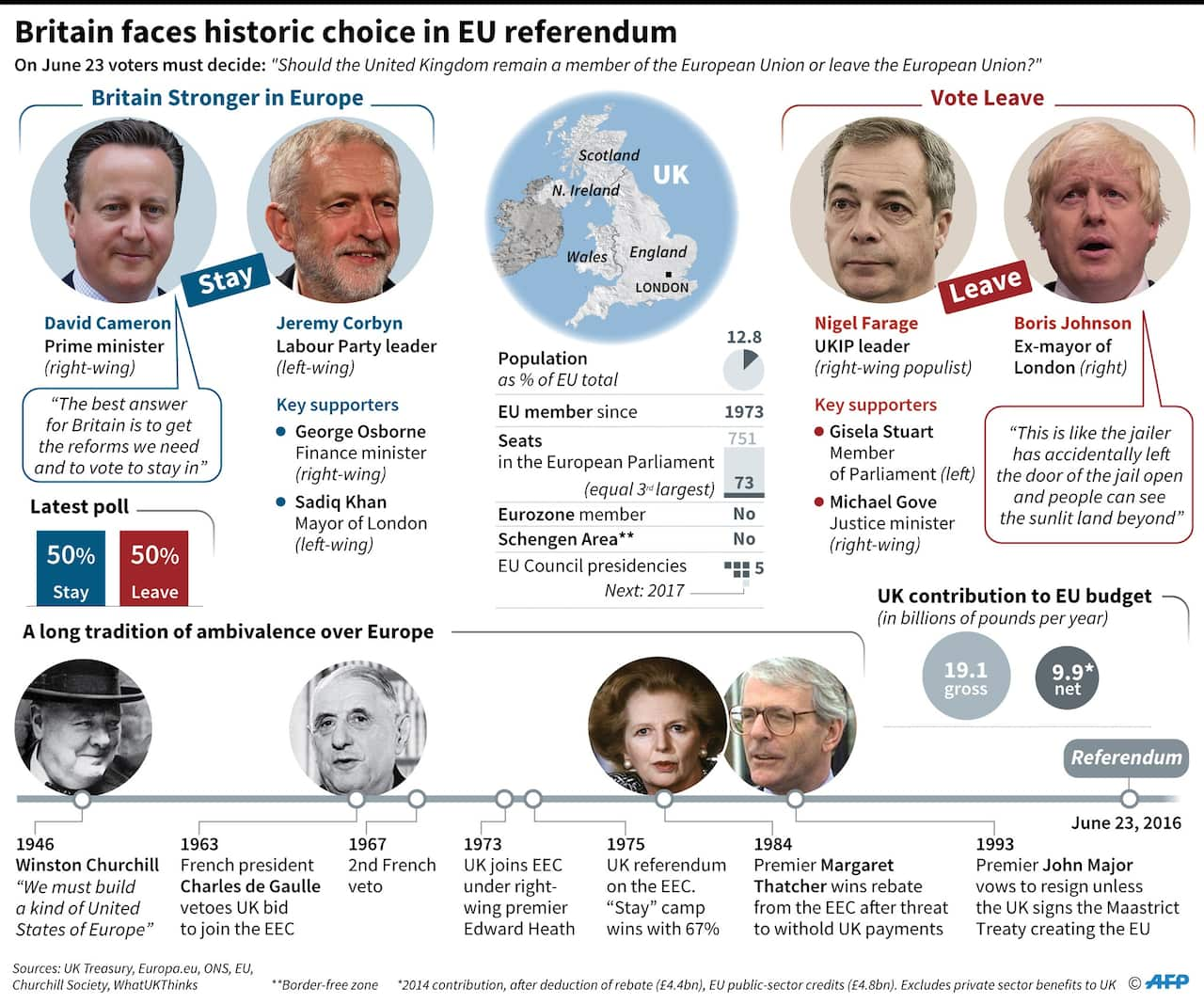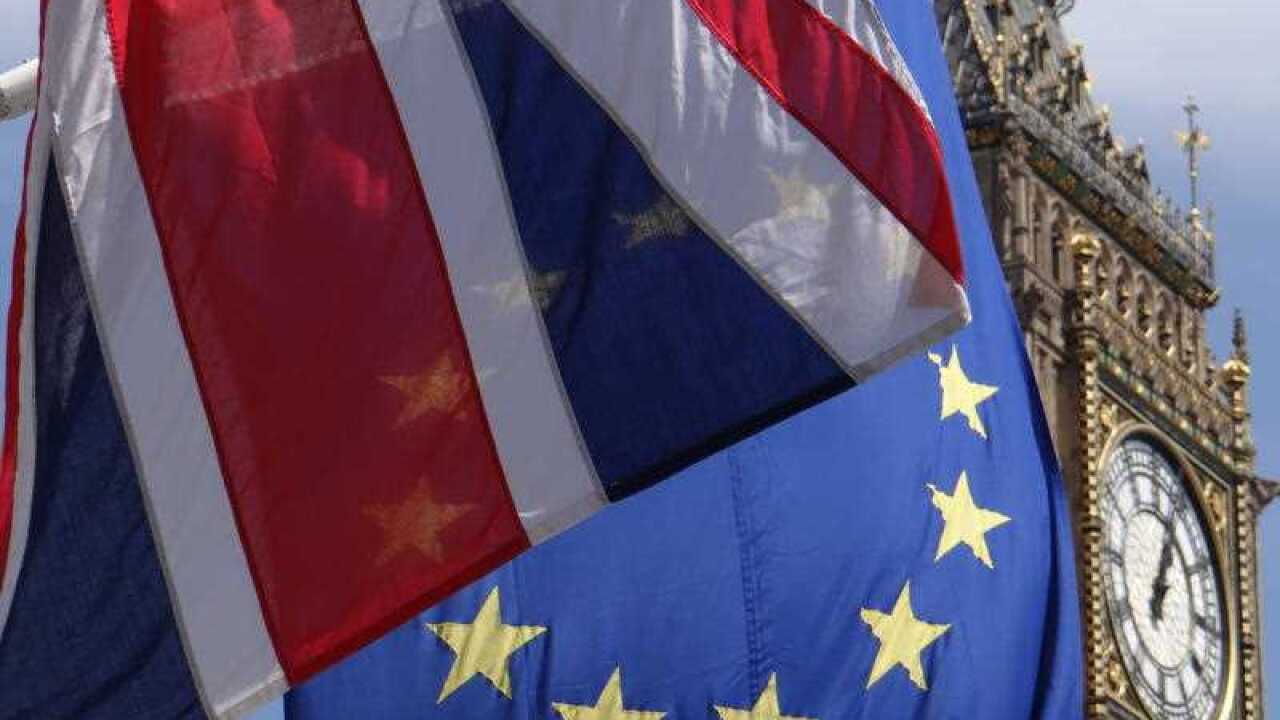Britons are voting on whether to stay in the European Union in a referendum that has split the nation and is being nervously watched by financial markets and politicians across the world.
Opinion polls taken before the vote indicate the outcome is too close to forecast, although two polls published late on Wednesday suggested a swing towards "Remain".
Much will depend on turnout, with younger Britons seen as more supportive of the EU than their elders but less likely to vote.
Polling stations opened at 0600 GMT (1600 AEST) on Thursday and will close at 2100 (0700 AEST Friday), with results expected to be announced by the 382 individual local counting areas between around 0100 and 0300 ((1100-1300 AEST) on Friday.

Prime Minister David Cameron called the vote under pressure from the anti-EU wing of his Conservative Party and the surging UK Independence Party (Ukip), hoping to end decades of debate over Britain's ties with Europe.
The "Leave" campaign says Britain's economy would benefit from an exit from the EU, or Brexit. Cameron says it would cause financial chaos and impoverish the nation.
He voted early, and said on Twitter: "Vote Remain - so that our children and grandchildren have a brighter future."
His main rival, former London mayor Boris Johnson, whose decision to support Leave galvanised its campaign, told voters on Wednesday this was the "last chance to sort this out".
It is only the third referendum in British history. The first, also about membership of what was then called the European Economic Community, was in 1975.
Most polls put the Leave and Remain camps neck-and-neck at the end of a bitter four-month campaign that was dominated by immigration and the economy, and shaken by the murder of pro-EU MP Jo Cox last week.
Traders, investors and companies were braced for volatility on financial markets whatever the outcome of a vote that both reflected, and has fuelled, an anti-establishment mood also seen in the US and elsewhere in Europe.
Sterling advanced to a 2016 high against the US dollar early on Thursday. Betting markets were pricing in a probability of close to 80 per cent that "In" would prevail.
Finance leaders from Group of Seven leading economies will issue a statement stressing their readiness to take all necessary steps to calm markets if Britain votes to leave, government officials with direct knowledge of the matter said.
Britain's AAA credit rating could be swiftly downgraded by Standard and Poor's if the Brexit camp prevails, S&P chief sovereign ratings officer Moritz Kraemer told German daily newspaper Bild.
On Wednesday, campaigners from both sides tried to win over the estimated 10 per cent of the 46.5 million electorate who polls suggest had still not decided which way to vote.
The In campaign took aim at their rivals by saying a Brexit would hurt the economy, security and the country's status. The Out campaign said high levels of immigration could not be controlled inside the EU and it was time to bring powers back from Brussels to London.
"If we don't vote to leave tomorrow we will remain locked in the back of the car, driven in an uncertain direction, frankly, to a place we don't want to go and perhaps by a driver who doesn't speak the very best of English," said Johnson, a leading contender to replace Cameron as prime minister.
Britain is deeply divided on EU membership, with big differences between older and younger voters, and between pro-EU London and Scotland and eurosceptic middle England.
Whatever the outcome of the vote, the focus on immigration to Britain, which has increased significantly in recent years, could worsen frictions in a country where the gap between rich and poor has also been widening.

